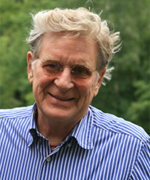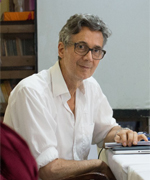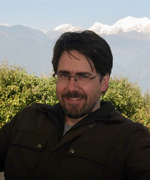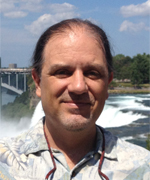Large Scale Projects: Multi-Volume, Multi-Source Language, Collaborative Projects
Large scale projects come with their own special challenges and this session with Robert Thurman, Editor-in-Chief of several major translation projects, including the Treasury of the Buddhist Sciences series, and James Gentry (filling in for John Canti of the Padmakara Translation Group) of 84000: Translating the Words of the Buddha project, addresses issues that arise when working on multi-volume, multi-source language, and collaborative projects. Tom Yarnall, a key editor and lead collaborator on the Treasury of the Buddhist Sciences series, facilitates the discussion.
Event: TT Conference 2017 – Discussion Session
Date: June 3, 2017 – 2:30 pm
Facilitators: James Gentry, John Canti, Robert Thurman, Tom Yarnall
Topics: Collaboration, Large Projects, Multi-source Language, Multi-volume Translation, Translation, Working Together

Robert Thurman
AIBS; Columbia University
Dr. Robert Thurman holds the Jey Tsong Khapa Chair in Indo-Tibetan Buddhist Studies at Columbia University. After education at Philips Exeter and Harvard, he studied Tibet and Tibetan Buddhism for fifty years as a personal student of H. H. Dalai Lama and numerous other Mongolian and Tibetan teachers. He has written both scholarly and popular books, and has lectured all over the world. His special interest is in the history of Buddhism as a set of socially revolutionary, educational institutions, as well as in the Indo-Tibetan philosophical and psychological traditions, as alive in relevance to parallel currents of contemporary thought and science. He is also the president of Tibet House US, the president of the American Institute of Buddhist Studies, and the Editor-in-Chief of the “Treasury of the Buddhist Sciences.” His own published translations include the Vimalakīrti Sūtra, Tsong Khapa’s Essence of True Eloquence, and his Brilliant Illumination of the Lamp of the Five Stages.

John Canti
Padmakara Translation Group; 84000
In 1970, while studying medicine at Cambridge, John Canti first met his Buddhist teachers, and started to practice under their guidance. After hospital work in London and Cambridge, he moved in the late seventies to eastern Nepal to establish tuberculosis programs in two remote hill districts. Beginning in 1980, he underwent two three-year retreats in the Dordogne, France. Emerging from retreat at the end of the 80s, he helped found the Padmakara Translation Group, of which he is now president, and remains an active translator. From 2001 to 2014 he was a Fellow of the Tsadra Foundation. He is editorial director of 84000 and serves on the working committee as chair of the editorial section. He is based mainly in France but has spent long periods in Nepal and India. As well as his 84000 work, John is working on Mipham’s commentary on the Ratnagotravibhāgottaratantraśāstra.

James Gentry
AIBS; Columbia University
James D. Gentry is a scholar of Tibetan religion, culture, and society. In his PhD dissertation completed at Harvard University he studied the roles of sacred objects, such as relics, amulets, and other sacra, in the lives of Tibetan Buddhists, now available as a tome from Brill's Tibetan Studies Library, Power Objects in Tibetan Buddhism: The Life, Writings, and Legacy of Sokdokpa Lodrö Gyeltsen. James’s research has led him to live in the Himalayan foothills of Nepal, Tibet, China, and India for nearly eight years. He has worked as an assistant professor at Kathmandu University's Center for Buddhist Studies at Rangjung Yeshe Institute and is currently a lecturer at the University of Virginia.

Tom Yarnall
AIBS; Columbia University
Dr. Tom Yarnall is an Associate Research Scholar and Adjunct Professor at Columbia University, where he specializes in Indo-Tibetan Buddhism. He works with the Columbia Center for Buddhist Studies and the American Institute of Buddhist Studies as the Executive Editor for the “Treasury of the Buddhist Sciences” series. Dr. Yarnall began his engagement with Buddhism in the late 70s, studying with Tibetan Lamas from all four orders while earning a BA in Religion at Amherst College in 1983. He later earned an MA, MPhil, and ultimately a PhD from Columbia University in 2003. Dr. Yarnall’s own scholarly work has focused on Mādhyamika philosophy, Buddhist ethics, and Tantric materials of the Unexcelled Yoga class. His study and translation of the creation stage chapters of Tsong Khapa’s Great Treatise on the Stages of Mantra (sngags rim chen mo) was published in the “Treasury of the Buddhist Sciences” series in 2013.
